Iran Uses Secret Prisons To Get Forced Confession From Protesters: CNN
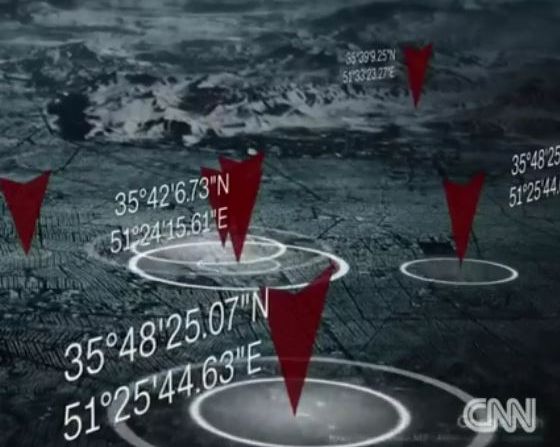
A CNN investigative report shows how the Islamic Republic uses a network of secret prisons to torture and suppress protesters, as well as to obtain force confessions from them.

A CNN investigative report shows how the Islamic Republic uses a network of secret prisons to torture and suppress protesters, as well as to obtain force confessions from them.
The network has been able to find the location of more than 40 unofficial torture centers and undeclared secret prisons in Iran, which are located in government-controlled facilities such as the basement of mosques.
To find the exact location of the secret detention centers, CNN interviewed eyewitnesses and detainees of the recent protests and matched this information with satellite images.
According to the report, eight, six, and five secret torture centers have been identified in Tehran, Sanandaj in the west, and Zahedan in the southeast, respectively.
In other cities such as Karaj, Mashhad, Tabriz, Kermanshah, Amol, Saqqez, etc., dozens of secret prisons have been identified based on the information provided by eyewitnesses.
Based on the CNN report, these secret prisons were places for torturing protesters to force them to confess so that the courts could issue heavy sentences such as death penalty for them.
Keyvan Samadi and Mohsen Sohrabi are two protesters interviewed by the CNN who had been imprisoned in these secret detention centers.
Injecting a substance to keep the prisoner alive, "kissing the neck and body" by the torturer, sexual torture with a baton are the things that Samadi and Sohrabi mentioned in an interview with the CNN.

A veteran reformist and an aide to former President Mohammad Khatami says the totalitarian regime has alienated over 80 percent of Iranians who no longer want the Islamic Republic.
In a speech Sunday, Javad Emam, the CEO of Khatami’s Baran Foundation, which he set up after his presidency came to an end in 2005, argued that the dictatorship’s acting against the will of the people, means they “are the ones actually causing regime change”.
Speaking at the Veterans Society Party’s 4th congress, Emam, the party's secretary general, strongly criticized the government’s foreign policy including regional policies which he said “drove Iran's Arab neighbors to Israel’s bosom”.
Addressing party members, which consist mainly of reformist veterans of the Iran-Iraq War, he said the country's foreign policy had also failed to restore the 2015 nuclear deal which has “resulted in the poverty and misery of Iran and Iranians”, and spurred Iran's collaboration with Russia in its war against Ukraine.
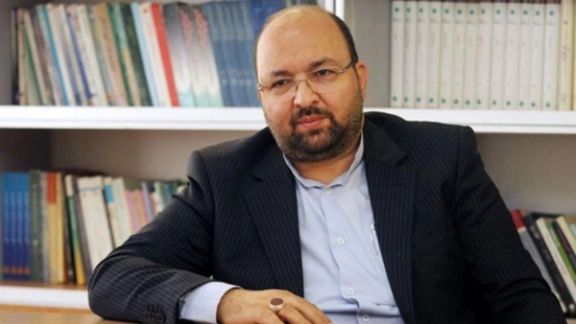
Iran has been supplying military drones to Russia since mid-2022, which Moscow has used to target Ukraine’s infrastructure. The United States and European powers have strongly warned Tehran to cease its military cooperation with Russia.
Khatami’s aide warned the government that “in the near future people will no longer listen to them if it does not listen to the voice of people”.
Emam’s sharp criticism comes on the heels of unprecedented popular protests and statements by other key reformist figures who have either called for a referendum to change the regime or serious and fundamental changes in Iran’s politics and economy.
Khatami said in November that regime change, as protesters demanded on the streets, was “neither possible, nor desirable” due to the inequality of the powers of the government and the people. But he also warned the hardliner establishment over continuing the status quo which he said would only deepen the prospects of “societal collapse”. He proposed reforms in the system as the “least costly and most useful” way out of the current quagmire the regime has gotten itself into.
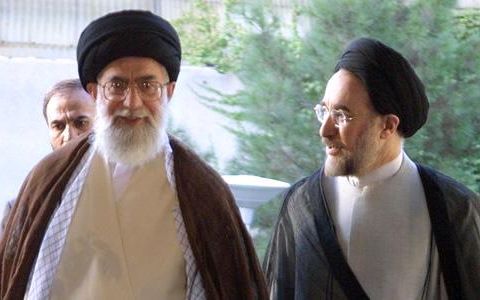
The Green Movement leader Mir-Hossein Mousavi, who was a presidential candidate in 2009 and has been under house arrest since 2011, however, in a statement on February 4, declared that the Islamic Republic was no longer reformable and fundamental change was required to “save Iran”. He proposed elections to appoint a constitutional assembly to write a new constitution and a referendum on the new constitution and its proposed form of government.
A day after Mousavi’s statement, Khatami, who was banned from the media and political activity as well as leaving the country years ago, also issued a statement which many saw as his opposition to Mousavi’s proposal and his insistence on preserving the Islamic Republic at any cost.
In his speech, Emam criticized Mousavi’s views and seemed to be siding with Khatami. He claimed that regime change views are promoted by those who want to cause a rift among reformists and the people.
Khatami and Mousavi both believe in non-violence and are against any foreign interference in Iranians’ affairs, he argued.
He added that before these two leaders’ statements, his own party had in an open letter to the Supreme Leader Ali Khamenei warned about the dire situation in the country and stressed the necessity of deep reforms and returning to the full implementation of the Constitution before it was too late.

Opposition figure Masih Alinejad says the UK should have closed the Iranian embassy instead of advising Iran International to relocate to the US over regime’s threats.
Alinejad made the comment Tuesday as she spoke about the uprising in Iran at the Italian Senate along with Canada-based activist Hamed Esmaeilion. They are also set to attend a gathering against the Islamic Republic in the capital Rome the following day, accompanying several other activists. Activist Hiva Feizi, Former United States Ambassador to the United Nations Mark Wallace, and Former Italian Senator Andrea Cangini were among the panel that addressed the Senate on Tuesday.
Alinejad was referring to the announcement by Iran International TV about shifting studio operations to Washington DC because of threats the UK police said were coming from the Islamic Republic, which have solicited worldwide reactions.
“At its sharpest, this has involved police and MI5 working together to foil 15 plots since the start of 2022 to either kidnap or even kill British or UK-based individuals perceived as enemies of the regime,” said a senior official of UK counter terrorism police.
Alinejad said after 15 plots, London should have taken more decisive action against the regime instead of advising Iran International to relocate. She also called on European countries not to be afraid of talking about “regime change” in Iran as the Iranians themselves are echoing this demand inside the country and abroad.
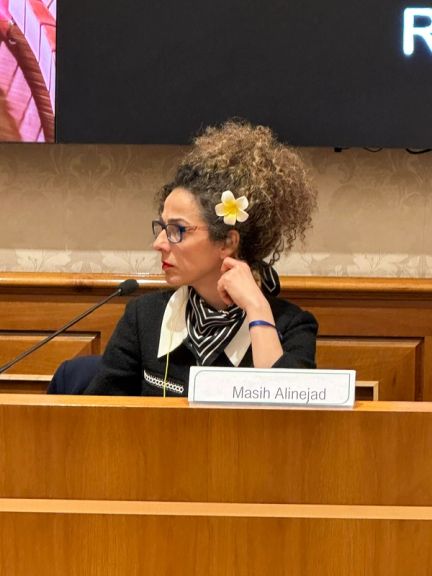
She added that keeping silent against the atrocities of the Islamic Republic is tantamount to taking sides with the regime, calling on all countries not to view the human rights situation in Iran as a mere internal issue. Standing up for human rights is a global issue, she highlighted. Alinejad alluded to American saying that ‘what happens in Vegas, stays in Vegas,’ noting that “What happens in Iran, spreads throughout the world.” “The Islamic Republic is the ISIS with oil,” she concluded.
Esmaeilion, in his turn, thanked the Italian lawmakers who have approved a draft resolution urging Tehran to immediately stop issuing death sentences to anti-government protestors and free all detainees. He also touched upon the shooting down of Flight PS752 by Iran’s Revolutionary Guard in 2020, in which he lost his daughter and wife, saying the circumstances of the tragic incident is still shrouded in mystery and the regime “sadistically harasses the families of the victims” to hide the realities.
Esmaeilion reminded the Senators that the regime has killed over 500 protesters, including at least 70 children, and arrested about 20,000 as part of its crackdown on the current wave of protests which is driven by women across Iran. He urged that the world, in particular European countries, not to negotiate with the Islamic Republic, which he described as “congenitally unable to be committed to any agreement.” He also referred to the persecution of ethnic and religious minorities in the country and said the Islamic Republic is a menace to Iranians and all the people of the world alike.
He also mentioned the regime’s support for the Syrian government in cracking down on dissent and military support for the Russian invasion of Ukraine. Elsewhere, he talked about the regime’s policy of hostage taking to use foreign nationals as bargaining chips.
Referring to a recent opinion survey involving 158,000 people in Iran that showed more than 80 percent of people reject the regime and prefer a democratic government, he called on the European countries to “suffocate all the means that nourishes” the regime.
Earlier on Tuesday, Iran's exiled prince Reza Pahlavi also held talks with French senators André Vallini and Jacqueline Eustache-Brinio. They called on Paris to contribute to all initiatives in support of protests to expedite the imminent fall of the dictatorship.
After a historic forum in Washington earlier this month by eight prominent dissident activists, they have been traveling to events around the world to make the voice of the Iranian opposition heard. Such events signal the emergence of a leadership council in the diaspora to campaign for international support in favor of Iran’s protest movement.
On Monday, an estimated crowd of about 20 to 30 thousand people held a rally in Brussels outside the European Council to call on EU countries to designate Iran’s Revolutionary Guard as a terrorist organization. Thousands of Iranians from all over Europe held a massive rally in Strasbourg in January for the same purpose.
Also on Monday, the EU sanctioned 32 Islamic Republic officials, including culture and education ministers, deputy IRGC commander, and several MPs. The move can be seen as a measure to justify the fact that the EU is not yet ready to designate the entirety of the IRGC.
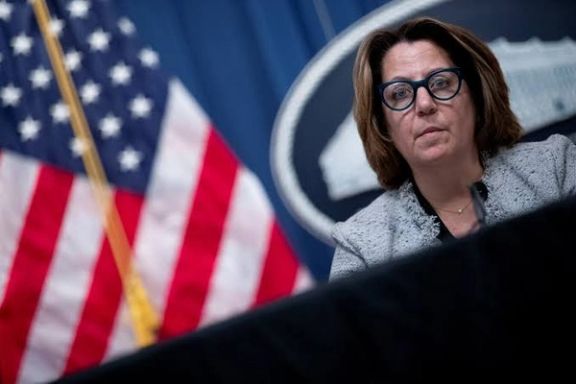
US Deputy Attorney General held talks with UK Security Minister Tom Tugendhat and counterparts in Germany and France about recent threats to journalists critical of the Iranian regime.
According to Justice Department, Lisa Monaco and her counterparts discussed the recent closure of Iran International’s London studios following persistent threats.
Iran International network announced on Saturday that it decided to move its studio and broadcast operations to its office in Washington DC after more than three months of threats the British police reported against its journalists.
UK’s Security Minister Tom Tugendhat at the British Parliament on Monday voiced full support for Iran International TV that has been threatened by elements of Iran’s Revolutionary Guard.
He stressed that UK’s partners in Europe and the United States are facing similar threats adding that “We are working together to keep our people safe.”
“My call this afternoon with other allies was about coordinating action that we will take to protect ourselves and ensure a unified response to these threats,” added Tugendhat.
“We are the strongest when we work with our allies around the world, and the Iranian regime should be under no doubt and no illusion that we are absolutely united.”
Iran International’s broadcasts have gained special significance since popular anti-regime protests broke out in Iran last September. Iranian officials have repeatedly threatened Iran International and other Persian broadcasters based abroad since the start of protests.
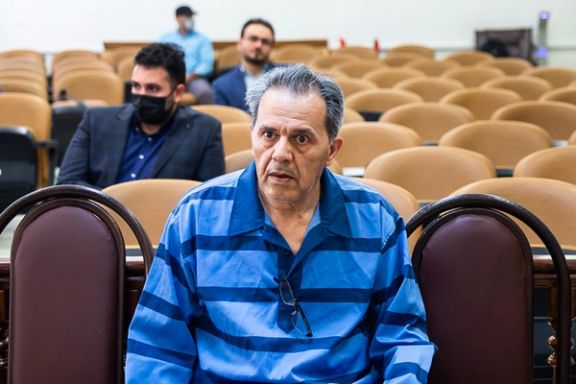
Iran's judiciary has sentenced Iranian-German national Jamshid Sharmahd to death on charges of "corruption on earth".
Mizan New Agency, which is affiliated with the regime judiciary, announced Monday that Sharmahd has been sentenced to death.
Sharmahd, who is also a US resident, is accused by Tehran of heading a pro-monarchist group accused of a deadly 2008 bombing and planning other attacks in the country.
In the bombing on a mosque in Shiraz 14 people were killed and 200 more were wounded, but Sharmahd and his family vehemently deny the accusation.
"His verdict can still be appealed in the supreme court," the agency added.
Sharmahd, the director of Tondar opposition group, has been held in solitary confinement for many days and he was denied an independent attorney and fair legal procedures.
The news of Sharmahd’s kidnapping in Dubai and his transfer to Tehran by Islamic Republic agents was first released in August 2020.
Based in Los Angeles, the little-known Kingdom Assembly of Iran, or Tondar, says it seeks to restore the Iranian monarchy that was overthrown by the 1979 Islamic revolution. It runs pro-Iranian opposition radio and television stations abroad.
The death sentence for Sharmahd comes as Iranian foreign ministry on Tuesday confirmed indirect talks with the United States over prisoner exchange through intermediaries.
The Islamic Republic is holding several Western prisoners in what human rights organizations have dubbed hostage diplomacy.
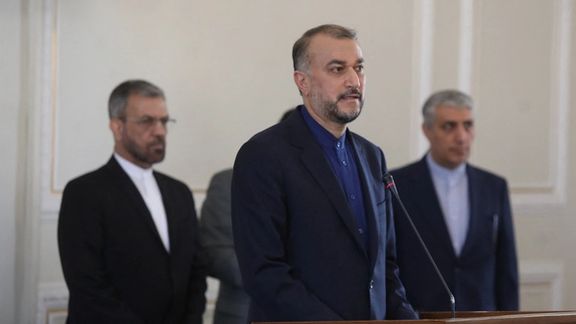
Iran’s foreign ministry says there has been indirect negotiations with Washington over the issue of a prisoner exchange because Tehran looks at the issue from a “humanitarian viewpoint”.
Regarding the role of some countries, including Oman, the foreign ministry spokesman Nasser Kanaani said on Tuesday that “Tehran appreciates the special efforts of the Sultanate of Oman in this regard.”
NBC News reported last week that indirect negotiations were taking place over releasing US hostages in Iran possibly in exchange for $7 billion of Iran’s money frozen by South Korean banks.
Kanaani also confirmed that “the exchange of prisoners was taking place through intermediaries; but due to Washington’s false promises it did not take place.”
“Iranian citizens imprisoned in the United States have often been detained on baseless accusations of the US government, claiming they wanted to bypass sanctions,” added Kanaani.
The NBC report quoted four sources familiar with the matter as saying that Qatar and Britain are easing the talks as intermediaries.
“The negotiations have made progress, but it remains unclear if a final agreement will be reached,” one of the sources said.
This came as nuclear talks between Tehran and the world powers have been stalled for several months, as the United States and its European allies have imposed new sanctions against the clerical regime.
Iran has been arbitrarily arresting Western nationals for decades and using them as bargaining chips against their government, according to UN experts and international human rights organization.